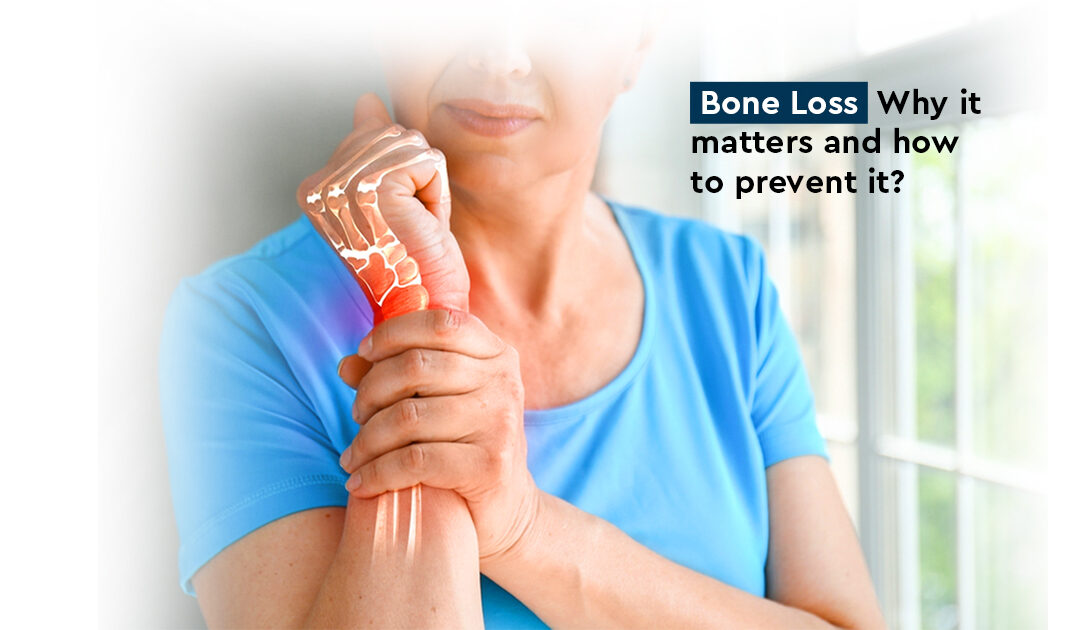Our bones serve as more than just a strong structure for our bodies. They are living tissues that are always renewing, storing critical minerals, and contributing significantly to our general well-being. Sadly, bone loss is a normal process that starts to happen as we get older. Although bone loss is unavoidable, our lifestyle choices have a substantial impact on the rate and severity of bone loss.
Why does bone health matter?
Healthy, active living is based on having strong bones. Important minerals like calcium and phosphorus are stored in them, and they also protect our organs and aid in movement. Everyday stress and strain can be tolerated by strong, robust bones. But as this vital component is weakened by bone loss, fractures and breaks become more likely.
What can bone loss result in?
- Osteoporosis: Osteoporosis, a disorder marked by poor bone density and an elevated risk of fracture, is the most worrisome effect of bone loss. Though it can damage any bone in the body, osteoporosis most usually affects the wrists, hips, and spine. Osteoporosis-related fractures can be severely painful, impair movement, and even require hospitalization.
- Enhanced Fracture Risk: Fractures can result from even a small fall or bump in someone with weaker bones. Hip fractures are especially dangerous since they can result in a substantial loss of independence and a higher chance of death.
- Chronic Pain: Bone loss-related fractures can produce excruciating pain that is challenging to treat.
- Loss of Mobility: Pain and fractures can make it difficult to move around, which can interfere with everyday activities and lower quality of life.
- Rising Healthcare Costs: Fractures necessitate immediate medical attention and frequently result in long-term care, hospital stays, and rehabilitation, all of which raise the expense of healthcare.
Strategies to prevent bone loss:
- Diet for Strong Bones: Make sure to eat plenty of calcium- and vitamin-D-rich foods. Bone is composed primarily of calcium, which your body may absorb more efficiently with the aid of vitamin D. Add fatty fish, dairy products, leafy green vegetables, and meals fortified with calcium to your diet. If necessary, speak with your doctor about taking a vitamin D supplement.
- Exercises Using Weights:Frequent weight-bearing activities such as dancing, running, walking, or strength training contribute to the development and maintenance of bone density. Most days of the week, try to get in at least 30 minutes of moderate-intensity activity.
- Keep Your Weight in Check: Fractures can occur more frequently in those who are overweight or underweight. A balanced diet and frequent exercise will help you reach your goal weight.
- Limit Bad Habits: Smoking and binge drinking can erode bone density. The two most important things for bone health are to stop smoking and drink less alcohol.
- Get enough sleep: Aim for 7-8 hours of good sleep every night to ensure you get enough rest. Bone health depends on getting enough sleep because that’s when bones regenerate most frequently.

